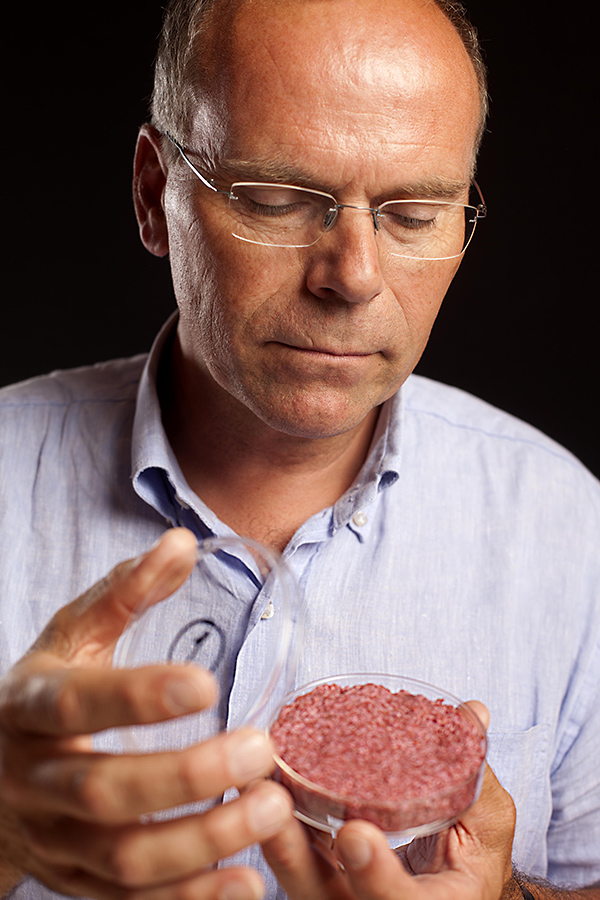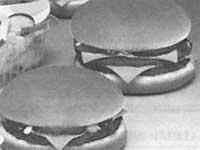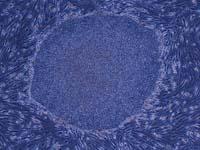Present the first burger in vitro
2013/08/05 Etxebeste Aduriz, Egoitz - Elhuyar Zientzia Iturria: Elhuyar aldizkaria

Today the first burger created in the laboratory was served in London. Mark Post's team at the University of Maastrich has been working with meat in vitro for years and today they have publicly presented their final result: a hamburger made from laboratory-bred beef cells.
This special burger has a cost of more than 250,000 euros and it is clear that it is still far from being on anyone's plate, but Post wants to show that it is possible to make artificially created meat. In October 2011 he announced that at six months he would be able to make the first sausage in vitro. In fact, with pork cells it was already possible to manufacture muscle strips 2.5 centimeters long and 0.7 wide. More months have passed and it has been a cow burger instead of a pork sausage.
The main advantages of in vitro meat are that cattle must not be killed and that it consumes less energy and generates less waste than conventional crops. According to a study conducted at the University of Oxford in 2011, between 35 and 60% less energy and between 80 and 95% less greenhouse gases.
But there are still problems to overcome. For example, embryonic stem cells would be the most effective in producing meat (because they are the ones with the greatest reproduction capacity), but scientists have not yet managed to grow the embryonic stem cells of cows, pigs and chickens (both mouse, rats, men and monkeys). Poste, however, has used other cells: myoblasts, adult stem cells located in the muscles. So, they have grown small portions of mioblasto in the petri dishes and have formed the burger with 20,000 parts.
Researchers have made it clear, however, that this will not be the way to make artificial meat in the future. On the one hand, because the mioblasts are not very effective and on the other, because for their breeding they have had to use the fetal serum of the cows. The latter involves the death of cows, so it does not meet the goals of artificial meat.
This is an intermediate step, but the first burger has already been tasted by two volunteers and by Poste at an event held today in London. However, there is still a long way to go to reach the market. Poste has announced that the process of creating the burger in vitro will take place between 10 and 20 years in the following video:
Gai honi buruzko eduki gehiago
Elhuyarrek garatutako teknologia





